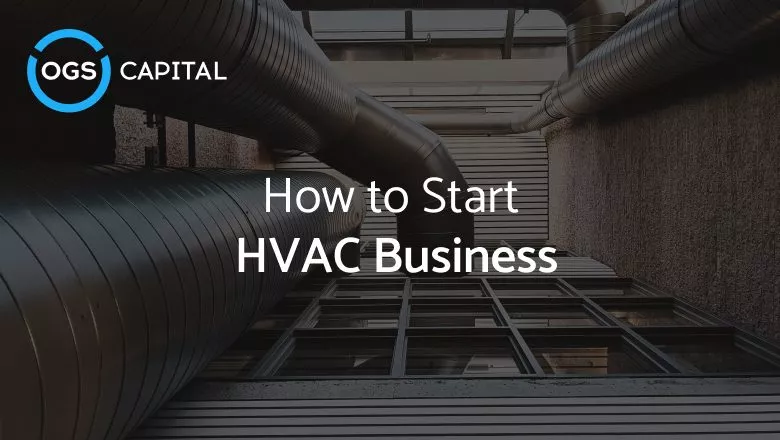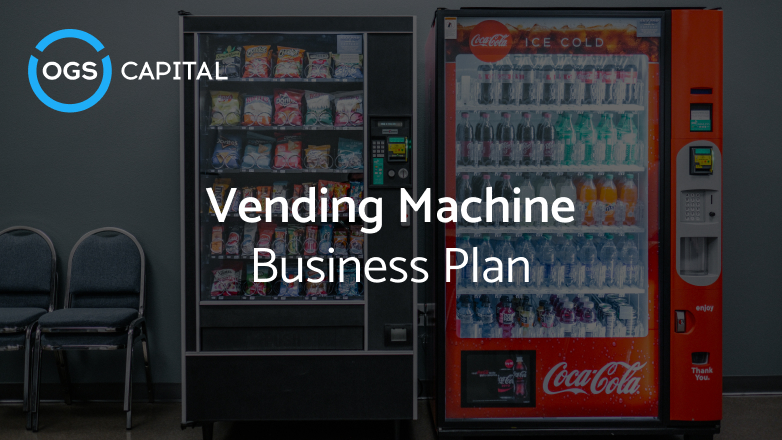Table of Content
HVAC stands for Heating, Ventilation, and Air Conditioning. An HVAC company offers services related to installing, maintaining, fixing, and replacing heating, cooling, and ventilation systems in homes and businesses.
HVAC is a great business to start in 2024. Markets and Markets research says the HVAC industry will grow at a CAGR of 6.3% and be worth $208.1 billion by 2028. In this article, we will guide you on how to start your own successful HVAC business in 2024.
Apply for Your Contractor’s License
To start an HVAC business, apply for your contractor’s license from your state or local authority. A contractor’s license is a legal requirement that allows you to operate as an HVAC contractor in your state. It also shows your customers that you are qualified and trustworthy to handle their HVAC needs.
The requirements and fees for obtaining a contractor’s license vary by state, so check with your local licensing board or Department of Labor for specific details. Generally, you will need to:
- Meet the minimum age and education requirements (usually 18 years old and a high school diploma or equivalent)
- Have some work experience in the HVAC field (usually 2 to 5 years)
- Pass a written exam that covers HVAC technical knowledge, business management, and law
- Pay a licensing fee and a bond (usually $200 to $1,000)
Some states also require you to have a separate HVAC license or certification, which we will discuss in the next section.
Buy HVAC Tools and Equipment
High-quality tools and equipment are vital to perform HVAC services efficiently. Depending on the type and scope of the services you offer, you need to invest in various HVAC tools and equipment, such as:
- Hand tools – Screwdrivers, pliers, wrenches, hammers, drills, etc.
- Power tools – Saws, grinders, sanders, etc.
- Measuring and testing tools – Thermometers, gauges, meters, etc.
- HVAC-specific tools – Refrigerant recovery machines, vacuum pumps, torches, etc.
- Safety equipment – Gloves, goggles, masks, etc.
- HVAC systems and components – Furnaces, air conditioners, ducts, vents, etc.
Online or offline HVAC suppliers, such as SupplyHouse, Grainger, or Home Depot, sell these tools and equipment. You have the option to rent equipment from companies like Sunbelt Rentals, United Rentals, or Herc Rentals. It is important to monitor your inventory and maintenance costs and make sure that your tools and equipment are operating effectively.
Bank/SBA Business Plan
Choose the Perfect Name for Your HVAC Business
Your business name is more than just a label; it reflects your brand identity, values, and services. A good name can draw customers, differentiate you from competitors, and establish your brand identity.
A good HVAC service business name should:
- Be catchy and memorable
- Be easy to spell and pronounce
- Be unique and not confused with other businesses
- Be relevant and descriptive of your HVAC services
- Be available as a domain name and social media handles
Once you have chosen a name for your HVAC business, register it with your state or local authority and secure the domain name and social media handles.
Create a Business Banking Account
A business banking account is a separate account used for your business transactions. A business banking account helps you to:
- Keep your personal and business finances separate and organized
- Track your income and expenses and prepare financial reports
- Avoid legal and tax issues and comply with accounting standards
- Build your business credit and access financing options
You can open a business banking account at any bank or credit union that offers business banking services. You will need to provide some information and documents, such as:
- Business name and address
- Business structure and ownership
- Business license and tax identification number
- Personal identification and proof of address
Compare the fees, features, and benefits of different business banking accounts, and choose the one that suits your business needs and budget.
Create an HVAC Business Plan
An HVAC business plan is a written document explaining your business, its goals, and how it plans to accomplish them. A business plan can help you:
- Define your vision, mission, and values
- Analyze your market, customers, and competitors
- Identify your SWOT
- Set your objectives and milestones
- Estimate your costs and projections
- Plan your operational activities
- Secure funding
The vital sections of an HVAC startup business plan checklist include:
- Executive Summary
- Service Offerings
- Market Analysis
- Business Operations
- Marketing Plan & Customer Acquisition
- Financial Plan
- Growth Plan
- Appendix
You should review and update your business plan frequently and adjust it according to changing market conditions and customer needs. Take the help of professional SBA business plan writers if required.
Create Your HVAC Services List
Your HVAC services list should include the specific HVAC services that you offer to your customers. Your HVAC services list should cover the following information for each service:
- Service name
- Service description
- Service price
- Service duration
- Service warranty
An HVAC business can offer various services, such as:
- HVAC installation
- HVAC repair
- HVAC maintenance
- HVAC replacement
- HVAC inspection
- HVAC tune-up
- HVAC emergency service
- HVAC duct cleaning
- HVAC air quality improvement
- HVAC energy efficiency improvement
- HVAC air conditioning business
- HVAC heating and cooling business
You should also highlight your unique selling points and competitive advantages, such as:
- Your qualifications, certifications, and experience in the HVAC field
- Your quality, reliability, and professionalism in delivering the service
- Your customer satisfaction and loyalty guarantee
- Your special offers and discounts
Here is an example of how to start an HVAC company services list:
| Service Name | Description | Price | Duration | Warranty |
| Furnace Installation in Florida (California) | Installation of high-efficiency furnaces, removal and disposal of old furnaces. | $3,000 – $6,000 | 4 – 8 hours | 10-year parts and labor |
| Air Conditioner Repair in Texas | Repair and tune-up of air conditioners. | $75 per hour | 1 – 3 hours | 90-day parts and labor |
| Duct Cleaning in Virginia | Cleaning, sanitizing, and sealing of ducts. | $300 – $600 | 2 – 4 hours | 1-year satisfaction guarantee |
| Indoor Air Quality Testing in Illinois | Testing of indoor air quality and provision of detailed reports and recommendations. | $150 – $300 | 1 – 2 hours | No warranty |
| Energy Efficiency Audit in Ohio | Audit of HVAC system and home’s energy usage and estimate for upgrades. | $250 – $500 | 2 – 3 hours | No warranty |
Decide What HVAC Services You’ll Offer
It is crucial to carefully choose your niche, target audience, and the services you offer to your customers. Consider the following factors before deciding:
- Skills, experience, and qualifications
- Budget, resources, and capacity
- Customer needs, preferences, and expectations
- Market demand, size, and growth
- Competition level, strategy, and differentiation
Consider the pros and cons of offering different types of HVAC services, such as:
- Residential vs. commercial HVAC services
- New construction vs. retrofit HVAC services
- General vs. specialized HVAC services
- Seasonal vs. year-round HVAC services
Note
Aim to offer HVAC services that match your strengths, meet customers’ expectations, and differentiate you from competitors. Be flexible and adaptable to changing customer needs and market conditions.
For instance, you may opt to provide HVAC installation and repair services exclusively to homeowners in your locality. This decision depends on several factors, such as your knowledge and experience in this field, limited budget and resources, high demand, low competition, and your ability to offer better quality and price compared to rivals.
Establish Your Financial Systems
Your financial systems are the methods and tools you use to manage your business finances. These include:
- Accounting and bookkeeping
- Invoicing and billing
- Payment processing and collection
- Tax preparation and filing
- Budgeting and forecasting
- Reporting and analysis
An established financial system will help you:
- Record and organize your business transactions and documents
- Monitor and control your income and expenses
- Optimize your cash flow and profitability
- Comply with legal and tax obligations
- Make informed and strategic business decisions
You need to set up your financial systems. You can pick a software or a service that can do these things for you, like QuickBooks, FreshBooks, or Wave. Or you can get a professional accountant or a tax advisor to help you with your money, records, and taxes.
Finalize Necessary Certifications
Certifications make people trust you more because they show your customers that you care about doing a good job, keeping them safe, and being professional. Some of the usual certifications for HVAC contractors are:
- HVAC technician certifications, such as NATE, EPA, or HVAC Excellence
- HVAC contractor certifications, such as ACCA, PHCC, or SMACNA
- HVAC specialty certifications, such as IAQ, LEED, or BPI
The requirements and fees for obtaining certifications vary by organization, so check with the relevant bodies for the specific details.
Finances for Your HVAC Business
To start a small HVAC business, you need to secure the finances. You must also have a clear understanding of your HVAC startup and operating costs, revenue streams, and profit margins and plan accordingly.
To secure the finances for your HVAC business, you will need to:
- Identify how much will it cost to start an HVAC business
- Estimate your operating costs and revenue projections
- Determine your break-even point
- Identify your funding sources
- Apply for funding from your chosen sources and prepare the required documents
- Manage your cash flow and ensure that you have enough cash to cover your expenses and grow your business
Get Bonded and Insured Before You Start on Job Sites
Bonding and insurance are the forms of protection you and your customers need in case of any accidents, damages, or losses that may occur during your HVAC work. They can help you:
- Reduce your financial risk and liability
- Increase your customer confidence and loyalty
- Comply with legal and contractual requirements
Get Liability, Health, and Workers Compensation Insurance
To get bonded and insured, you will need to:
- Surety bond – A type of bond that guarantees that you will fulfill your contractual obligations to your customers.
- Liability insurance – Covers the legal and medical costs that may arise if you or your employees cause bodily injury or property damage to a third party while performing your HVAC services.
- Health insurance – Covers the costs of any medical expenses that you or your employees may incur due to illness or injury.
- Worker’s compensation insurance – Covers the lost wages and medical expenses that you or your employees may incur due to work-related injuries or illnesses. This also protects you from being sued by your employees for such incidents.
- Commercial auto insurance – Covers the damage or loss of your vehicles and equipment that you use for your HVAC business (including accidents caused by your employee while working).
You can get bonded and insured for your HVAC business from various sources, such as online or offline bonding and insurance companies, agents, or brokers. Ensure to compare the costs, features, and benefits of different bonding and insurance options. Also, review and update your bonding and insurance policies regularly.
Get Licensed and Certified Before You Start
Licensing and certification are mandatory requirements that prove your eligibility and competence to operate as an HVAC contractor in your state. They also show your customers that you adhere to the industry standards and regulations. Some of the common licenses and certifications for HVAC contractors are:
- Contractor’s license – This allows you to operate as a general contractor in your state and bid on HVAC projects.
- HVAC license – This allows you to perform HVAC installation, maintenance, and repair services in your state.
- EPA certification – This allows you to handle refrigerants and comply with environmental regulations.
- NATE certification – This is a voluntary credential that demonstrates your proficiency and professionalism in various HVAC specialties.
Getting licensed and certified before you start your HVAC business will help you avoid legal troubles, gain credibility, and attract more customers.
How OGSCapital Can Help You Start Your HVAC Business
If you are looking for professional and reliable assistance to start your HVAC business, you can count on OGSCapital. We are a team of business plan experts who have helped thousands of entrepreneurs like you to launch and grow their businesses successfully.
We can help you with every aspect of your HVAC business plan, from market research and analysis to financial projections and funding, to marketing and growth strategies with our operational and strategic planning services.
We have a team of qualified and experienced business plan writers, consultants, and analysts, who will work with you to understand your goals, needs, and challenges, and deliver a high-quality and effective business plan that will impress your investors, lenders, and partners. Contact us today for your HVAC business plan.
Frequently Asked Questions
How profitable is the HVAC industry?
The global HVAC industry is very profitable with a rapidly growing market size of over $200 billion in 2023, according to a report by Grand View Research. The industry is expected to grow at a CAGR of 6.5% from 2023 to 2030, driven by the demand for energy-efficient and environmentally friendly HVAC systems and services.
Is HVAC a good job to start your own business?
Owning an HVAC business is a good option as it offers a variety of settings, services, and markets to work in. HVAC technicians also have high job security, as their skills cannot be automated or outsourced, especially considering how hard it is to learn HVAC. HVAC businesses also have relatively high-profit margins, ranging from 20% to 40%. However, running an HVAC business also requires challenges, such as obtaining the necessary licenses, certifications, insurance, and equipment and facing competition and regulations.
OGSCapital’s team has assisted thousands of entrepreneurs with top-rate business plan development, consultancy and analysis. They’ve helped thousands of SME owners secure more than $1.5 billion in funding, and they can do the same for you.



















